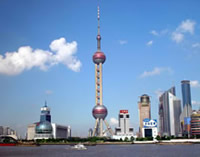|
|


ADVERTISEMENT
Buy Your own advertising
spaces!
.
Download Adobe Acrobat Reader to open [PDF] files.
Recent Visitors
The venom called
2010. 3 March
by Rogério Beltrão Coelho We have on one hand, the project’s author claiming that Macau’s organisers are interfering with his copyrights. He’s absolutely right. On the other hand, the person responsible for our representation in Shanghai claims that, since the project’s author
(macaudailytimes.com.mo)
There’s an uproar happening concerning Macau’s pavilion at the Shanghai Expo 2010 and although it’s a serious matter, I feel there is something funny about it.
What happens here is that the administration of MSAR (and before 1999) legally removed with the left hand what it gave with the right.
The Bill of Intellectual Rights, introduced in the 1990’s as extremely avant-garde, duly conveys to the author in a most unequivocal way, all rights to his/her work. But practice shows that the bill should have also included a safeguard clause explaining that it only applies to private entities … and even so, not all entities.
Here, as in other fields, what appears to concern the “administrative engine” in the first place, is to resort to a kind of “ruse” enabling itself to be exempt from the rules it set up or approved.
There are absolutely no literary, design, or artwork contests launched by public institutions in Macau that, through offering a few [usually too few] patacas’ award, doesn’t severe the author’s links to his copyrights to use it as their own, as stated in the contest rules.
So, for half a dozen patacas for the awardees, and not even a cent for the excluded participants, the Administration is entitled to an interesting collection of original works, some of them of value, that it may use “freely as the organisers deem appropriate”, as often clearly stated in contest rules.
The same thing happens with the intellectual work of any author while a “public servant”. Whatever they conceive and produce while employed by a public institution will always be regarded as the institution’s copyrighted work.
That, by the way, is the “advantage” of setting up rules that “willfully” acknowledged by the citizen it applies to, are legally countered. All it needs is a signature below a declaration forfeiting one’s copyrights…Not very rightful in the moral point of view, but totally legal. And maybe even with no going back.
If such a situation had occurred in private company some voices would no doubt claim against such “work force exploitation”. But since it concerns public entities – as the person responsible for the Macau Pavilion in Shanghai 2010 stated – it is a “perfectly legal” stance.
An example amply followed by some local academic institutions that claim for themselves the ownership of their researchers and contributors’ works, though requiring all too often from them even an extra cooperation in the publishing stage of their works.
This happens everyday in Macau and those affected are usually left with no other choice than to comply or be left empty handed!
Maybe this once, the uproar about the Macau Pavillion in Shanghai 2010 and the copyright questions it has raised may serve the purpose of enlightening the public and making lawmakers aware of the matter.
For those who make the laws, or do not question them (notwithstanding the evidence), or those who just pretend it’s not their business – beware – for they will truly realize how mistaken they were when they are given a taste of their own venom – an insidious venom called “legality”.
Source: www.macaudailytimes.com.mo

